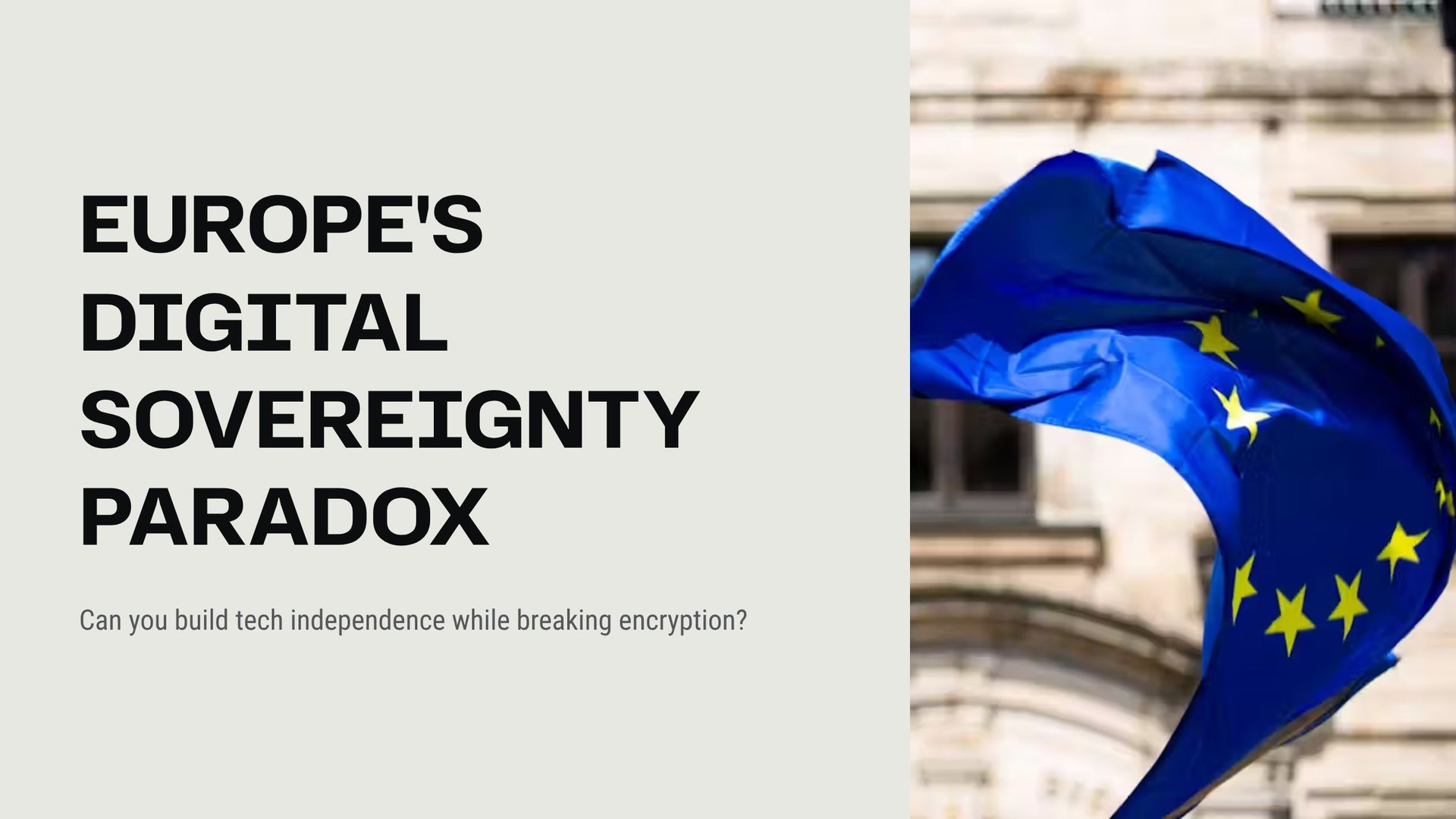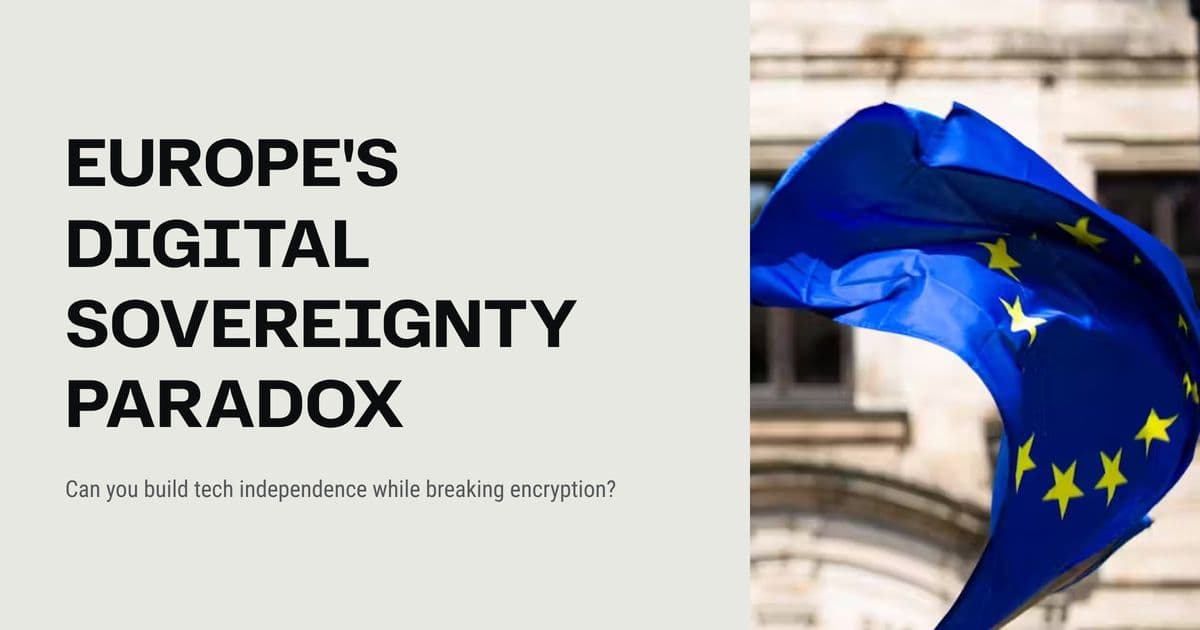A pivotal EU vote mandating scanning of encrypted communications was abruptly halted when Germany withdrew support, creating a blocking minority. This reprieve offers European tech companies and engineers a critical window to educate policymakers on why undermining encryption threatens digital sovereignty and security fundamentals. The coming months will test whether Europe can align its geopolitical ambitions with technical reality.

In a dramatic twist, the European Council's October 14th vote on the controversial "Chat Control" regulation—which would mandate scanning of all private communications, including encrypted messages—was pulled at the last minute. Germany's unexpected withdrawal of support created a blocking minority, derailing the Danish Presidency's plan to fast-track approval. This eleventh-hour reprieve offers a crucial respite, but the battle isn't over: Denmark aims to revive the proposal before its EU presidency ends in December.
The Sovereignty Paradox
Hundreds of European tech companies—including Proton, NordVPN, Tuta, Murena, Element, and ProcessOne—have vocally opposed Chat Control. These firms represent the continent's bid for digital sovereignty, building alternatives to U.S. hyperscalers with local infrastructure and values-driven technology. Yet the proposed regulation would force them to compromise the very encryption protocols that enable secure, sovereign communications.
"You cannot turn encryption on or off depending on what is considered right in a given place at a given moment," notes the ProcessOne analysis. "You either have secure end-to-end encryption or you don't. There is no 'just this once' exception that doesn’t become an exploitable vulnerability."
This stance highlights a fundamental disconnect: Policymakers advocating for the measures seem unaware that end-to-end encryption is a foundational layer of modern internet infrastructure, not an optional feature. When Denmark’s Justice Minister dismissed secure communication as a "completely misguided perception," he revealed a dangerous gap in understanding—one with implications beyond privacy.
Security Beyond Politics
Europe is prioritizing defense spending amid geopolitical tensions but overlooks that digital infrastructure is the modern battlefield. Secure networks underpin drone operations, critical infrastructure protection, and misinformation defense. Undermining encryption doesn't just erode civil liberties; it creates systemic vulnerabilities adversaries could exploit.
The core contradiction is stark: Can Europe achieve digital sovereignty while forcing its tech champions to implement backdoors? Can it demand independence from U.S. giants while handicapping homegrown alternatives with vulnerabilities those giants may circumvent via lobbying or technical workarounds?
The Engineer-Policymaker Divide
Germany's intervention bought two months for infrastructure builders and security engineers to bridge the knowledge gap between Brussels’ political vision and technical reality. This dialogue is urgent—policies crafted without protocol-level understanding risk catastrophic unintended consequences. As ProcessOne observes:
"Europe's path to digital sovereignty requires policymakers who grasp geopolitical stakes and engineers who understand protocol layers. We cannot afford policies that contradict our strategic goals."
The December showdown will reveal whether Europe chooses tech governance rooted in engineering principles—or doubles down on approaches that sabotage its sovereignty ambitions. With secure communication protocols now existential infrastructure, the continent's strategic autonomy hangs in the balance.
Source: Adapted from ProcessOne's analysis of the Chat Control postponement

Comments
Please log in or register to join the discussion